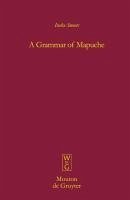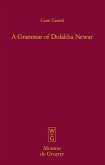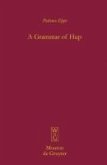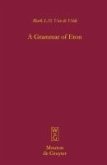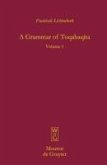Mapuche is the language of the Mapuche (or Araucanians), the native inhabitants of central Chile. The Mapuche language, also called Mapudungu, is spoken by about 400,000 people in Chile and 40,000 in Argentina. The Mapuche people, estimated at about one million, constitute the majority of the Chilean indigenous population. The history of the Mapuche is the story of passionate fighters who managed to stop the Inca's but succumbed to the Spanish invaders after two and a half century of warfare. The relationship of the Mapuche language with other Amerindian languages has not yet been established. Mapuche is a highly agglutinative language with a complex verbal morphology. This book offers a comprehensive and detailed description of the Mapuche language. It contains a grammar (phonology, morphology and syntax), a collection of texts (stories, conversations and songs) with morphological analyses and free translations, and a Mapuche-English dictionary with a large number of derivations and examples. The grammar is preceded by a socio-historical sketch of the Mapuche people and a brief discussion of previous studies of the Mapuche language. The material for the description was collected by the author with the help of five Mapuche speakers with attention to the dialectal differences between them. The abundance of thoroughly analysed examples makes for a lively decription of the language. The intricacy of the verbal morphology will arouse the interest not only of those who practice Amerindian linguistics but also of those who are interested in language theory and language typology.
Dieser Download kann aus rechtlichen Gründen nur mit Rechnungsadresse in A, B, BG, CY, CZ, D, DK, EW, E, FIN, F, GR, HR, H, IRL, I, LT, L, LR, M, NL, PL, P, R, S, SLO, SK ausgeliefert werden.

